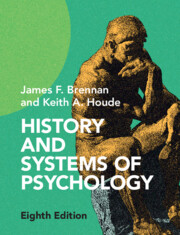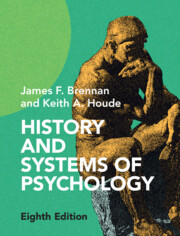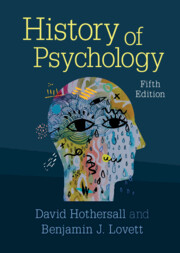A History of Psychology in Western Civilization
This book is a re-introduction to psychology. It focuses on great scholarly thinkers, beginning with Plato, Marcus Aurelius and St Augustine, who gave the field its foundational ideas long before better known 'founders', such as Galton, Fechner, Wundt and Watson, appeared on the scene. Psychology can only achieve its full breadth and potential when we fully appreciate its scholarly legacy. Bruce Alexander and Curtis Shelton also argue that the fundamental contradictions built into psychology's history have never been resolved, and that a truly pragmatic approach, as defined by William James, can produce a 'layered' psychology that will enable psychologists to face the fearsome challenges of the twenty-first century. A History of Psychology in Western Civilization claims that contemporary psychology has overemphasized the methods of physical science and that psychology will need a broader scientific orientation alongside a scholarly focus in order to fully engage the future.
- Presents a 'parallel' rather than 'sequential' conception of the history of psychology - where scholarly history is presented as seven classic perspectives on the human psyche, all of which have been evolving separately since
- Focuses in depth on the key classic scholars considered to be the most important to psychology - Plato, Marcus Aurelius, St Augustine, Hobbes, Locke, Hume, Darwin and Freud
- Each of the classic scholars is linked with at least one contemporary psychologist, enabling readers to see that classical perspectives already live in the present, but there is also much more about them to be discovered
Reviews & endorsements
"Anyone who can link the Roman emperor Marcus Aurelius with Abraham Maslow, Plato with Chomsky and Hume with Seligman is on to something! The approach is stunning in its creativity and accessibility."
Alex Forsythe, University of Liverpool
"This highly innovative and engaging work is an attempt to supply what [Alexander and Shelton] believe is missing … The selective treatment of authors and issues is one of the features that distinguish this book from other current texts on the history of psychology, which often sacrifice depth of understanding in an effort to achieve comprehensiveness of coverage."
William E. Smythe, PsycCRITIQUES
Product details
August 2014Paperback
9780521189309
559 pages
228 × 150 × 30 mm
0.79kg
6 b/w illus. 12 tables
Available
Table of Contents
- 1. Introduction: two histories of Western psychology
- 2. Rationalism: Plato and the 'just' person
- 3. Stoicism: Marcus Aurelius and the sufficient self
- 4. Christianity: St Augustine and the incomplete soul
- 5. Materialism: Thomas Hobbes and the human machine
- 6. Empiricism: John Locke, David Hume, and experience as reality
- 7. Evolution: Charles Darwin and Homo sapiens as a work in progress
- 8. Medicine: Sigmund Freud and the world of neurotics
- 9. Re-imagining psychology.





